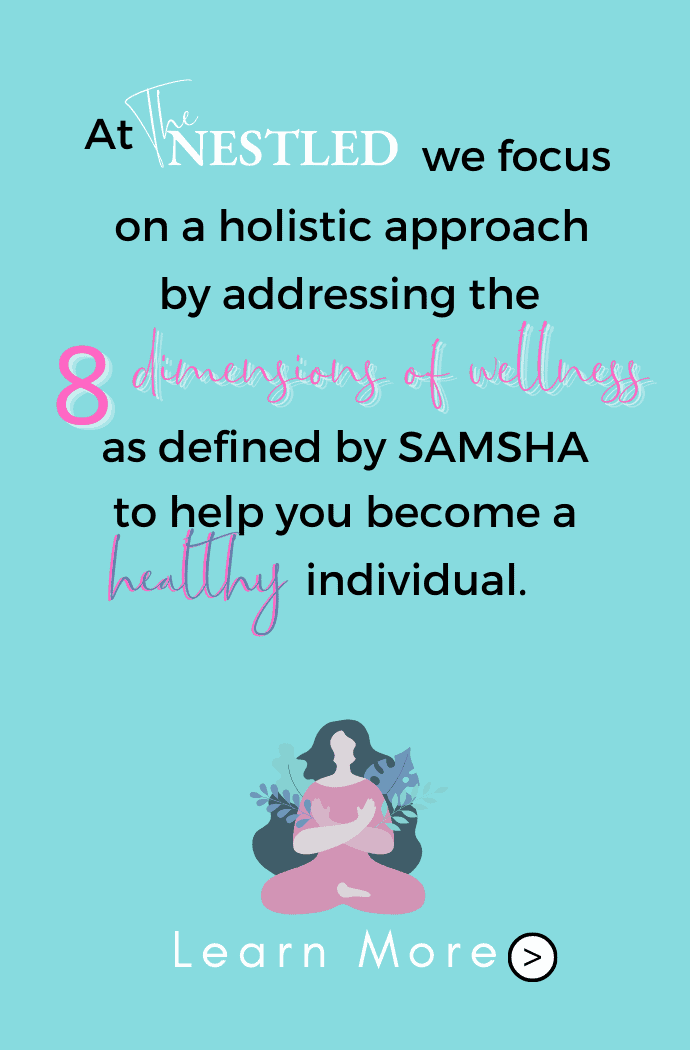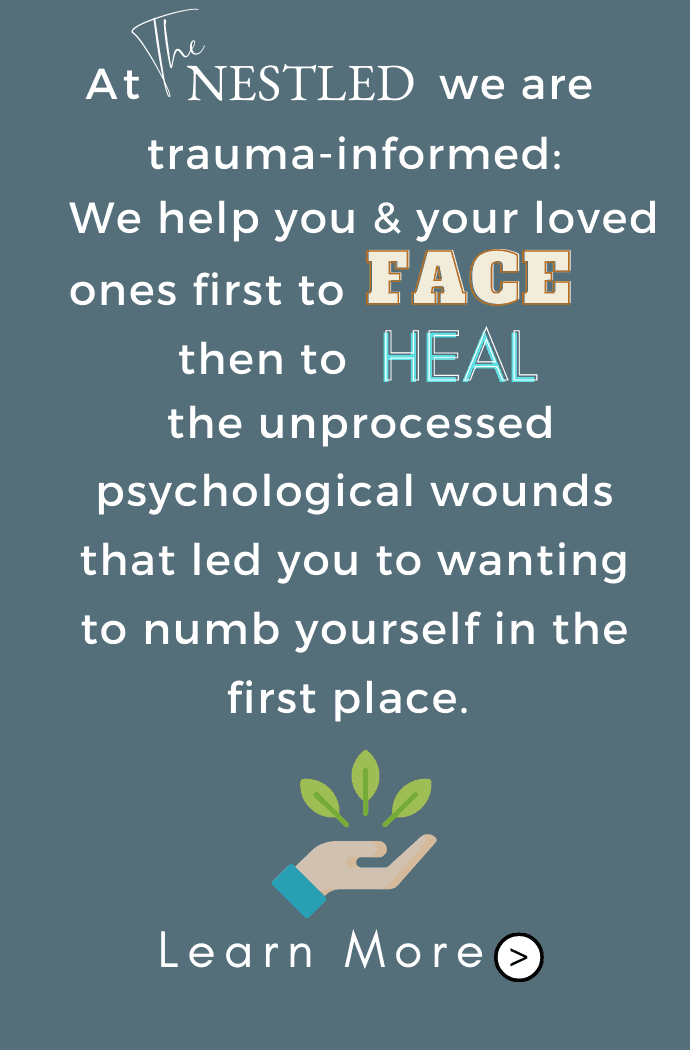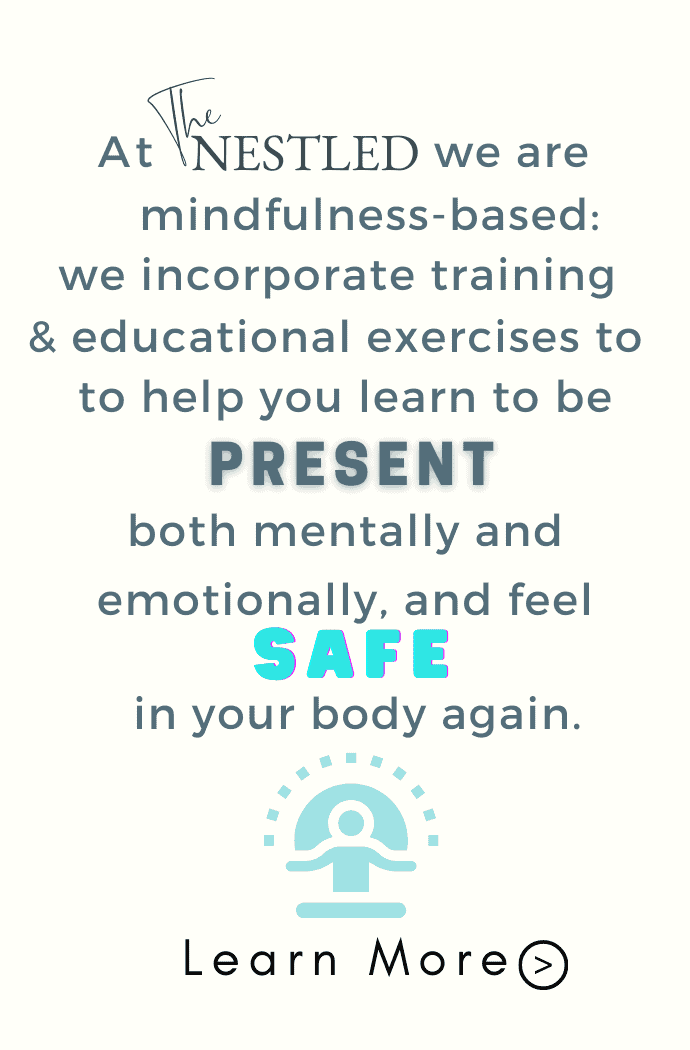Key Takeaway:
- A holistic approach to addiction treatment considers the physical, emotional, and spiritual aspects of a person in their recovery journey, which can lead to a higher chance of success in achieving and maintaining sobriety.
- Alternative holistic methods such as art therapy, music therapy, adventure therapy, and meditation have shown promising results in improving patient outcomes, including reduced stress, improved self-awareness, better communication skills, and decreased cravings and relapse rates.
- Incorporating holistic therapies into traditional addiction treatment methods can enhance the effectiveness of treatment and address the limitations of conventional approaches, such as focusing only on symptom management and ignoring the root cause of addiction. However, challenges may arise, such as resistance from patients or lack of integration in the healthcare system, requiring careful planning and training of healthcare professionals.
Holistic treatment for substance use disorder (SUD) is an integrative approach that focuses on treating the individual as a whole—mind, body, and spirit—rather than merely addressing the symptomatic manifestations of the disorder. This perspective seeks to identify and remedy the root causes of substance misuse, comprehensively addressing its multifaceted implications on a person’s physical, psychological, emotional, and social wellbeing. The holistic method underscores the interconnectedness of these various domains and strives to restore harmony and equilibrium, facilitating comprehensive healing and sustainable recovery.
A myriad of holistic treatment modalities exists for substance use disorders. These include:
-
Mindfulness-Based Therapy: This approach incorporates mindfulness meditation practices to promote awareness of the present moment. By focusing on one’s feelings, thoughts, and sensations without judgment, individuals are equipped with tools to better cope with cravings and emotional distress.
-
Cognitive-Behavioral Therapy (CBT): CBT helps individuals identify and modify maladaptive thought patterns that contribute to substance misuse. It enhances cognitive and behavioral skills, which in turn promote abstinence and prevent relapse.
-
Nutritional Therapy: Recognizing the impact of nutrition on mental and physical health, this modality incorporates dietary changes and nutritional supplements to assist in detoxification and recovery. It seeks to restore nutritional deficiencies common in those with substance use disorders.
-
Acupuncture and Acupressure: These traditional Chinese medical practices are used to rebalance the body’s energy, alleviate withdrawal symptoms, reduce cravings, and mitigate stress and anxiety.
-
Yoga and Tai Chi: These mind-body practices combine physical postures, breathing exercises, and meditation to improve mental clarity, reduce stress, enhance emotional resilience, and increase physical strength and flexibility.
-
Art and Music Therapy: Expressive therapies like art and music therapy allow individuals to explore and express emotions non-verbally. These therapeutic forms can help release suppressed feelings, promote self-awareness, and facilitate emotional healing.
-
Biofeedback and Neurofeedback: These techniques involve using electronic sensors to monitor body functions such as brainwaves, heart rate, and muscle tension. The data gathered assists individuals in developing control over these physiological processes to reduce stress, enhance relaxation, and improve overall mental health.
-
Animal-Assisted Therapy: Interactions with animals, such as dogs and horses, have been shown to reduce stress, improve mood, and facilitate social interaction and communication.
-
Mindfulness and Meditation: These practices train the individual to focus their mind on the present moment, fostering a heightened state of awareness and acceptance of one’s current feelings, thoughts, and sensations. Regular mindfulness and meditation can significantly reduce stress, anxiety, and negative emotional states, factors that often contribute to substance misuse and relapse. Moreover, mindfulness-based relapse prevention has shown promise in reducing cravings and improving response towards triggers in individuals recovering from substance use disorders.
-
Wellness Practices: Wellness practices can encompass a broad range of activities designed to promote better physical health and emotional wellbeing. These can include:
-
Physical exercise: Regular physical activity can improve mood, reduce anxiety, and mitigate the negative health effects associated with substance use. Exercise can serve as a healthy coping strategy, providing a natural and positive reinforcement that reduces substance use urges.
-
Sleep hygiene: Adequate sleep is vital for physical and mental health. It enhances mood, energy levels, and cognitive functions, all essential components in the recovery process. Practicing good sleep hygiene involves creating a consistent sleep schedule, establishing a restful environment, and developing habits that promote quality sleep.
-
Healthy eating: A balanced, nutrient-rich diet contributes significantly to overall health and wellbeing. Individuals with substance use disorders often have nutritional deficiencies. Adopting healthy eating habits can help repair physical damage caused by substance use and build a stronger foundation for recovery.
-
Social connections and leisure activities: Fostering healthy relationships and engaging in enjoyable leisure activities can also play a vital role in recovery. Social support networks provide emotional assistance, motivation, and accountability during recovery, while leisure activities can offer a sense of purpose, enjoyment, and a positive diversion from substance use.
-
Each of these modalities, individually or in synergy, is potentially instrumental in creating a personalized and dynamic treatment plan that takes into account the unique needs, strengths, and recovery goals of the individual. The holistic approach to treating substance use disorders provides a rich tapestry of options that can be tailored to enhance the individual’s overall wellbeing and optimize the prospects for sustained recovery.
A Holistic Approach to Addiction Treatment: An Overview
When it comes to treating addiction, traditional methods such as medication and therapy have been the go-to for many years. However, Holistic Addiction Treatment is becoming more popular as it takes a more comprehensive approach to treating addiction by addressing not only the addiction itself, but also the underlying causes and imbalances.
In this section, we will explore what holistic addiction treatment entails, and some benefits it offers over traditional methods. So, if you’re curious to know how an alternative method can help you overcome addiction for good, keep reading!
Defining Holistic Addiction Treatment
Holistic addiction treatment is the practice of treating the whole person – mind, body, and spirit – instead of just focusing on the addiction itself.
Holistic addiction treatment aims to identify and address the underlying causes of addiction. By doing so, it takes into account factors such as emotional wellbeing and mental health which may have contributed to the addictive behavior. By combining various therapeutic interventions such as acupuncture, yoga, meditation, and talk therapy with nutrition counseling or other alternative solutions, a comprehensive view of the individual’s overall health is reached.
It’s important to remember that every person has their own set of unique needs. So, holistic addiction treatment can vary from patient to patient based on their specific requirements. While some may benefit from mindfulness-based therapies like meditation or yoga, others might find group therapy more helpful in promoting a sense of community.
In addition to traditional therapy methods in rehab settings such as cognitive-behavioral therapy and motivational interviewing used in combination with medication-assisted therapy (MAT), alternative forms of support or integrated approaches should often be employed due to personalized therapeutic benefits.
Advantages of a Holistic Approach to Addiction Treatment
When it comes to treating addiction, a holistic approach can have many advantages. This approach takes into account the whole person, treating not just the addiction itself but also the person’s mental, emotional, and physical health.
One advantage of a holistic approach to addiction treatment is that it can be more effective than traditional methods alone. By addressing the root causes of addiction and helping individuals develop coping skills, holistic treatments can lead to greater success in maintaining sobriety.
Another advantage is that holistic treatments tend to have fewer side effects than traditional medications. Many people who struggle with addiction are also dealing with other medical issues or mental health concerns, so finding treatments that won’t exacerbate those problems is crucial.
In addition, holistic treatments are often more customizable and tailored to the individual’s specific needs. This means that they can be more effective for people who haven’t responded well to other treatments or who have complex medical histories.
Some examples of holistic approaches to addiction treatment include meditation or mindfulness practices, acupuncture or massage therapy, nutritional counseling, and exercise regimes. Each of these treatments provides different benefits that can help individuals manage their addiction in a comprehensive way.
Comprehensive Traditional Addiction Treatment
When it comes to treating addiction, traditional methods have been in use for quite some time now. In this section, we will take a closer look at comprehensive traditional addiction treatment approaches, their effectiveness, and the limitations that come along with them.
Firstly, we will provide you with an overview of the common conventional addiction treatment methods that have been proven to be effective in many cases. However, despite these methods’ success, they do have their limitations, leading to the need for alternative treatment methods. In the following sub-section, we will explore these limitations and discuss why some patients may need holistic approaches to addiction treatment instead.
An Overview of Conventional Addiction Treatment
An overview of conventional addiction treatment involves the use of traditional approaches to treat addictions, which includes abstinence-based programs and twelve-step models. These conventional methods are widely accepted and have been used for several decades to help individuals overcome their addictions.
Conventional addiction treatment is mostly based on cognitive-behavioral therapy (CBT), a talking therapy that deals with changing patterns of thought and behaviors that lead to addiction. The CBT approach helps individuals become aware of their negative thoughts that can trigger substance abuse and teaches them strategies to manage them positively.
Moreover, conventional addiction treatment involves medically-supervised detoxification, which is often the first step in treating substance abuse disorders. Medications may also be prescribed to manage withdrawal symptoms and co-occurring mental health conditions.
It is important to note that despite criticisms from some quarters, formal research has shown the effectiveness of conventional treatments in achieving long-term sobriety. However, the success rates depend primarily on the individual’s commitment or willingness to participate fully in the program.
Limitations of Traditional Addiction Treatment Strategies
When it comes to addiction treatment, traditional methods have been u

sed for decades. However, these strategies have certain limitations that must be addressed. These shortcomings can result in patients not receiving the best possible care they need.
Traditional addiction treatment strategies typically involve sparse therapy sessions and medications to manage withdrawal symptoms. These methods are designed around a medical model that operates on diagnosing, prescribing, and monitoring patients. This system fails to take into account the complexity of addiction as a disease and overlooks the social determinants linked to substance use disorders.
Furthermore, traditional approaches often have a one-size-fits-all approach to treatment that neglects the importance of individualized care. The focus is mainly on symptom reduction without addressing underlying issues such as trauma and mental health problems that patients may encounter.
Studies have shown that there is an undeniable relapse rate with these traditional practices. Patients discharged from traditional treatments are seen again within five years with co-occurring substance abuse issues or continuous relapses. Outdated techniques do not consider holistic aspects of care covering body, mind, spirit, and emotional health.
Exploring Alternative Holistic Methods for Addiction Treatment
This section delves deeper into exploring some of these alternative methods that explore the person as a whole, emphasizing mental, emotional, and spiritual health alongside physical health. We’ll take an in-depth look at the benefits of art therapy for addiction treatment, how music therapy can help those struggling with addiction, and how adventure therapy offers a unique and powerful therapeutic experience. Lastly, we’ll examine the impacts of meditation on addiction recovery and how it can be used effectively as a tool for healing.
The Impacts of Meditation on Addiction Recovery
Meditation has garnered significant attention in the world of addiction recovery over the years. Its profound impacts on individuals striving to overcome substance abuse have been reported as being remarkable. Various studies suggest that regular meditation can improve impulse control, promote self-awareness, and strengthen emotional stability, all of which are vital aspects of addiction treatment.
Meditation is essentially a mental practice designed to cultivate mindfulness and awareness. During meditation, individuals learn how to listen attentively to their thoughts and feelings without judgment, shame or guilt. As a result, they can develop skills that enable them to shift their focus away from negative emotions, stressors or triggers that trigger reactions and cravings for drugs or alcohol.
The impacts of meditation on Addiction Recovery extend beyond just easing cravings and promoting emotional stability. With constant practice, individuals can gain valuable insights into their core values and beliefs that often dictate behaviors related to drug use or drinking habits.
Research indicates that people affiliated with religious institutions have better outcomes in addiction recovery than those who lack spiritual support. One explanation is that spiritual practices like prayer and meditation enhance one’s overall well-being by reducing anxiety, fear, depression and other negative emotions.
Integrating Holistic Approaches into Traditional Methods
When it comes to addiction treatment, traditional methods such as therapy and medication have been the go-to options for years. But what if we told you that integrating holistic approaches alongside conventional treatment can provide better results? In this part of the article, we’ll talk about the advantages of incorporating holistic therapies to addiction treatment. It’s not just about treating the symptoms but treating the patient as a whole, including their physical, mental, and emotional well-being. While there are numerous benefits, integrating holistic treatments can still be challenging, which brings us to the second point of discussion – overcoming challenges in integrating holistic treatments. But before we dive into that, let’s first take a closer look at the advantages of a holistic approach with the data and research to back it up.
Advantages of Incorporating Holistic Therapies to Addiction Treatment
Incorporating holistic therapies to addiction treatment has numerous advantages that traditional methods can’t offer. By taking a more holistic approach, therapists use interventions that encourage the mind-body-spirit connection, allowing individuals to become aware of negative patterns and feelings they may have been suppressing before.
The key advantage of including holistic therapy in addiction treatment is that it helps individuals view themselves as more than their addiction. Instead of treating just the physical aspects of an individual’s drug abuse or addiction, therapists can utilize holistic techniques to help manage stress, anxiety, and unresolved trauma. This creates a safe space where patients can reflect on not only their addiction but also the underlying roots of their behavior.
Studies have shown that incorporating holistic therapies into traditional treatment models increases positive outcomes while reducing rates of relapse. Mindfulness-based practices such as meditation, yoga, and aromatherapy help patients develop self-awareness and improve their emotional well-being. Additionally, acupuncture, massage therapy, and other bodywork techniques facilitate physical relaxation and reduce pain associated with withdrawal symptoms.
The Nestled Recovery‘s unique aspect of using holistic approaches in treating addiction is that it allows individuals to explore alternative forms of healing that align more closely with their values or culture.
Some Facts About Holistic Approaches to Addiction Treatment:
- ✅ Holistic approaches to addiction treatment address the physical, emotional, and spiritual needs of the individual. (Source: Recovery.org)
- ✅ Alternative methods used in holistic addiction treatment include acupuncture, massage therapy, and yoga. (Source: Verywell Mind)
- ✅ Holistic treatment may also include nutritional therapy, meditation, and art therapy to promote well-being. (Source: PsychCentral)
- ✅ The goal of holistic addiction treatment is to address the root causes of addictive behaviors and support overall healing and wellness. (Source: Addiction Center)
- ✅ Holistic addiction treatment programs may be offered at residential facilities, outpatient clinics, and other healthcare settings. (Source: American Addiction Centers)
FAQs about Holistic Approaches To Addiction Treatment: Exploring Alternative Methods
What are Holistic Approaches to Addiction Treatment?
Holistic Approaches to Addiction Treatment involve treating the whole person – mind, body, and soul – and not just the addiction itself. This means looking at alternative methods to traditional treatment, including meditation, yoga, acupuncture, and alternative therapies.
How do Holistic Approaches to Addiction Treatment work?
Holistic Approaches to Addiction Treatment work by addressing the underlying causes of addiction, such as stress, trauma, and mental health issues. By using alternative methods such as meditation, yoga, and alternative therapies, individuals can learn coping skills and stress management techniques that will help them stay sober in the long term.
What kind of alternative therapies are used in Holistic Approaches to Addiction Treatment?
Alternative therapies used in Holistic Approaches to Addiction Treatment can include acupuncture, massage therapy, art therapy, and music therapy. These therapies help individuals manage stress, anxiety, and other underlying issues that can lead to addiction.
Can Holistic Approaches to Addiction Treatment be used alongside traditional treatment methods?
Yes, Holistic Approaches to Addiction Treatment can be used alongside traditional treatment methods. In fact, many addiction treatment centers now offer a mix of traditional and holistic approaches to help individuals achieve long-term recovery.
Is Holistic Addiction Treatment covered by insurance?
In many cases, Holistic Approaches to Addiction Treatment are covered by insurance. However, it’s important to check with your insurance provider to see what kind of coverage is available.
How effective are Holistic Approaches to Addiction Treatment?
Holistic Approaches to Addiction Treatment are a highly effective way to treat addiction. In fact, many individuals who have gone through traditional treatment methods and relapsed have found success with Holistic Approaches to Addiction Treatment. However, it’s important to work with a qualified and experienced addiction treatment professional to determine the best course of treatment for your individual needs.









